George Tchaparian, CEO of Open Compute Project (OCP), highlights the success of this year's global summit. With 7,000+ attendees (compared to last year's 4,400+), the event reflects the massive interest in AI and data center technologies. George touches on the strength of collaboration across many participants in the ecosystem and the scaling that the OCP has seen in the community. He notes that attendees, including hyperscalers, are finding commonalities and efficiencies to work together, contributing to the greater scale of AI and data center capabilities.
OCP Global Summit Showcase
While you're here, feel free to check out our previous report on data center networking and infrastructure acceleration covering AI fabrics, SmartNICs/IPUs/DPUs, CXL and other connectivity technologies. We've started work on the 2024 edition, contact us to inquire about sponsoring!
UNLOCKED REPORT — no personal info needed to download
2024 OCP Global Summit
“Whether or not GenAI lives up to its hype and becomes the operating system for all business and consumer software, it will likely be a primary consumer of data center resources over the next five to ten years.”
OCP Global Summit 2024 Highlights from Thought Leaders
The following media comprises interviews and other content related to 2024 OCP Global Summit held in San Jose. Views expressed are those of the presenting individuals and companies and may not necessarily represent views of Converge! Network Digest or AvidThink.
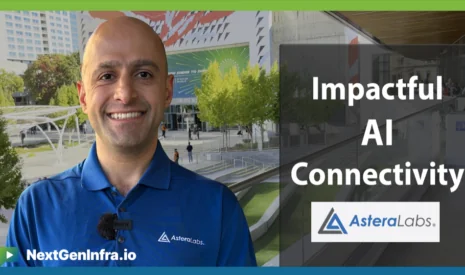
Impactful AI Connectivity
Ahmad Danesh, Sr. Director of Product Management at Astera Labs, outlines three key challenges in data center infrastructure: AI workloads, real-time reasoning, and rapid deployment of new accelerators. Astera Labs addresses these issues through their Ethernet retimers, Smart Fabric switch, and PCIe 6 retimers, combined with their Cosmos software stack to enhance connectivity and observability.
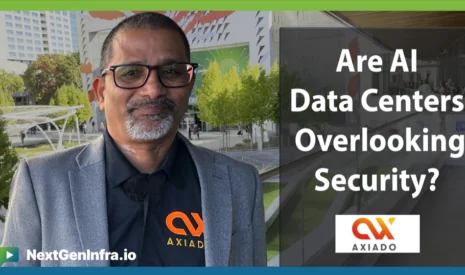
Are AI Data Centers Overlooking Security?
Gopi Reddy Sirineni, CEO of Axiado, discusses the critical need for built-in security in modern computing platforms, especially AI servers. Axiado’s hardware-based solutions for server control and management sections utilize platform root of trust and accelerated computing, offering robust defense for AI and x86-based systems.
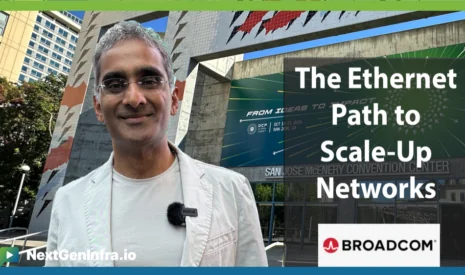
The Ethernet Path to Scale-Up Networks
Ram Velaga, GM and SVP of the Core Switching Group at Broadcom, highlights Ethernet’s dominance in large GPU clusters for scale-out networking, noting its prevalence in backend networks for clusters of 10,000 to over 100,000 GPUs. Ram anticipates Ethernet’s success in scale-up networking within racks, citing its ability to meet requirements and economic advantages.
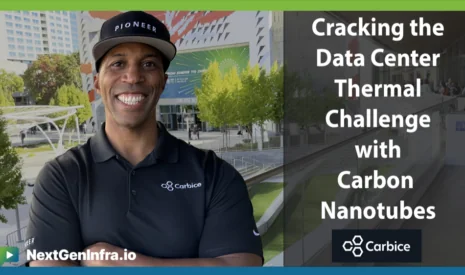
Cracking the Data Center Thermal Challenge with Carbon Nanotubes
Baratunde Cola, CEO and Founder of Carbice, introduces the company’s advanced thermal interface materials, highlighting their potential to enhance cooling in data centers and AI applications. Carbice’s vertically aligned carbon nanotubes maintains consistent performance throughout thermal cycles, addressing key issues in energy efficiency and asset longevity.
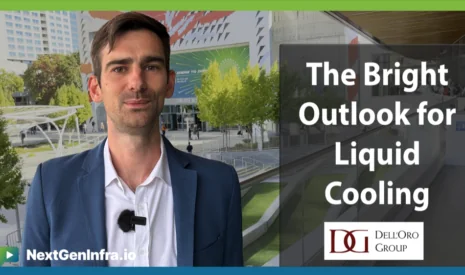
The Bright Outlook for Liquid Cooling
Lucas Beran, Principal Analyst at Dell’Oro Group, examines the growing importance of data center liquid cooling technologies. He outlines advancements in single-phase and two-phase direct chip liquid cooling, as well as immersion cooling, to meet the demands of high-density computing and AI workloads.
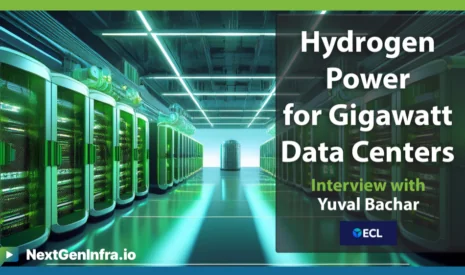
Hydrogen Power for Gigawatt Data Centers
Yuval Bachar, co-founder and CEO of ECL, catches the NGI crew pre-OCP to discuss ECL’s next-generation sustainable data centers powered by hydrogen. ECL addresses the challenge of unreliable grid power and the growing demand for AI-driven data centers by offering an off-grid microgrid powered by hydrogen fuel cells that is zero-emission and water-positive.
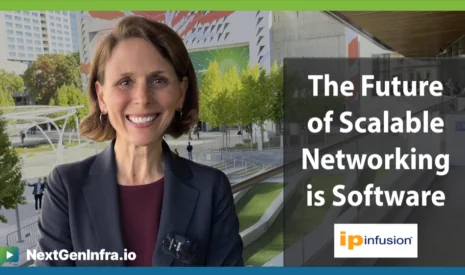
The Future of Scaling Networks is Software
Kelly LeBlanc, VP of Marketing at IP Infusion, outlines the company’s focus on scaling networks for next-generation data traffic, highlighting their collaboration with Scott Data (data center facilities operator). IP Infusion’s solutions, running on OCP-accepted hardware, have enabled Scott Data to scale from 100 Gig to 400 Gig networks, with equipment now operating at over 14 terabits per second.
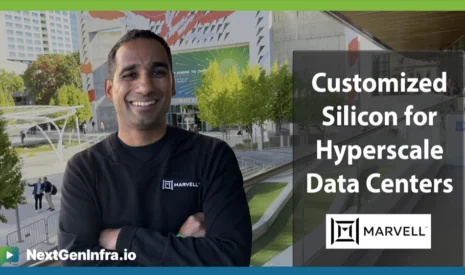
Custom Silicon for Hyperscale Data Centers
Nigel Alvares, VP of Global Marketing at Marvell, discusses the company’s collaboration with hyperscalers to create custom silicon for optimized performance, power, and cost. He announces Meta’s release of the FB NIC, a network interface controller, which Marvell has open-sourced to the OCP community, demonstrating the use of Marvell’s 5-nanometer platform for tailored silicon solutions.
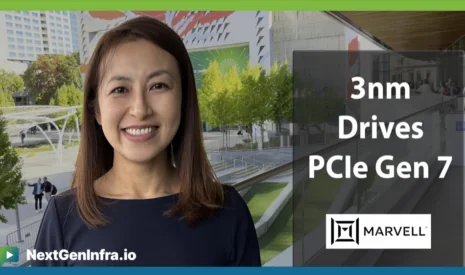
3nm Drives PCIe Gen 7
Annie Liao, Product Management Director at Marvell, discusses PCI’s evolution as a standard protocol for computer system connectivity and the challenges of increasing speeds. Marvell is addressing these challenges with PCI retimers, showcasing Gen 6 and Gen 7 solutions that extend trace lengths and support upcoming advancements in PCI technology.
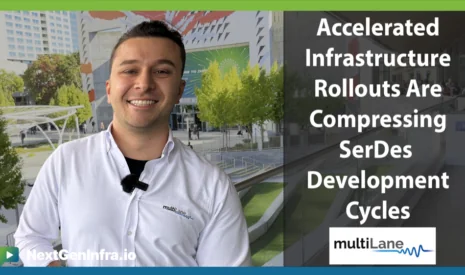
Compressed Dev Cycles for AI Interconnects
Hani Daou, Business Development Manager at Multilane, discusses the compute interconnect AI industry’s growth and challenges, highlighting compressed demand cycles and potential interoperability issues. To address these concerns, Daou emphasizes the importance of comprehensive testing and introduces Multilane’s new generation of equipment for high lane count testing.
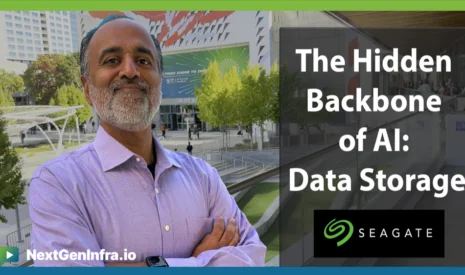
The Hidden Backbone of AI: Data Storage
Praveen Viraraghavan, Technologist in the Office of the CTO at Seagate, emphasizes the role of data storage in AI, highlighting that all models, checkpoints, and datasets require long-term storage. Viraraghavan explains that hyperscalers, OEMs, and on-premises solutions are focusing on growing capacity at scale, leveraging storage infrastructures and data lakes to serve data to compute clusters.
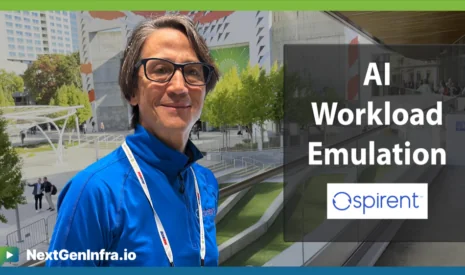
AI Workload Emulation
Kevin Chang, Engineering Director of Hardware Platforms at Spirent, introduces an AI emulation solution for validating workloads on AI fabrics without needing actual GPUs. Chang showcases a new concept integrating OCP NIC 3.0 form factor into their GPU emulation system, enabling comprehensive testing of various system elements and network technologies.